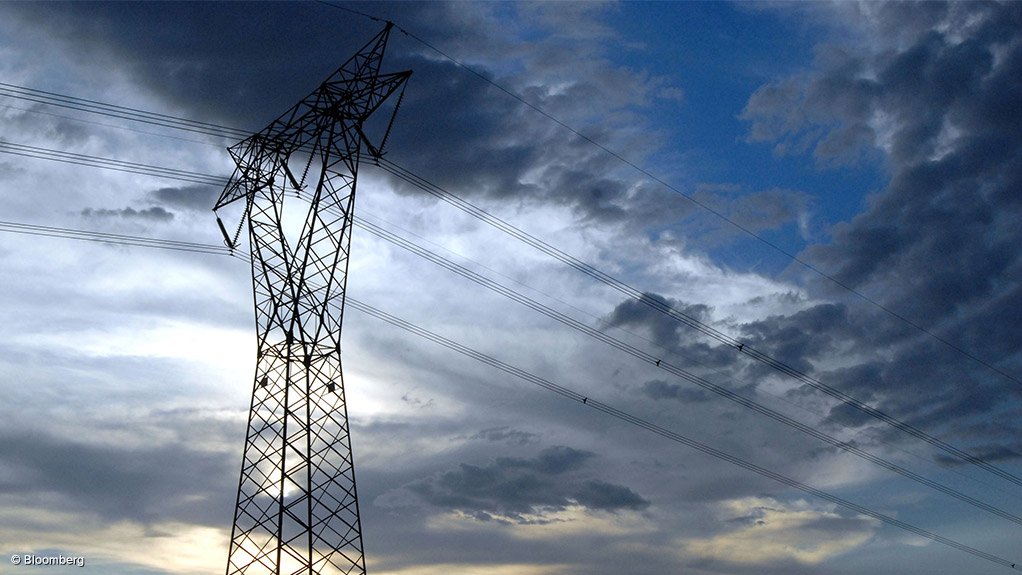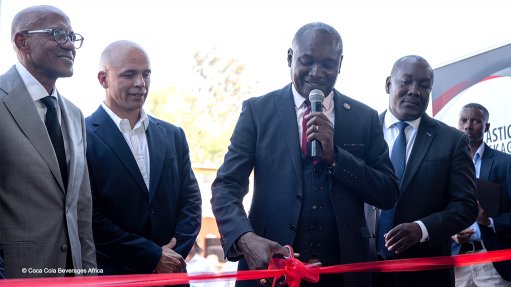Any interdict of Eskom’s new grid rules would create ‘problem’ for renewables roll-out
The South African government has expressed concern that its plans for the addition of new renewables capacity could be disrupted should a legal challenge launched against Eskom’s recently announced grid allocation rules prevail and has also indicated that it would favour a settlement instead.
G7 Renewable Energies, together with two of its wind farm companies, has launched a two-part application to, firstly, interdict the implementation of Eskom’s Interim Grid Capacity Allocation (IGCA) rules, which came into force on June 27, as well as to have the rules reviewed and set aside based on their alleged illegality under the Promotion of Administrative Justice Act.
Eskom revised its grid rules following Bid Window Six (BW6) of the public renewables programme, when none of the 23 wind projects vying for a 3 200 MW allocation were able to advance to preferred-bidder status after it emerged that budget quotes for the same grid capacity on which the projects were bid had, instead, been allocated to companies pursuing bilateral contracts with private offtakers.
The IGCA framework unveiled on June 27 replaced the previous ‘first come, first served’ approach with a ‘first ready, first served’ model, which Eskom said was necessary to ensure that only shovel-ready projects were granted grid capacity in a context of severe grid scarcity in certain regions.
The initial industry response was cool, with all the associations describing the new rules as “onerous”. Nevertheless, it was indicated that engagements would continue and that further adjustments might be made in future to accommodate the concerns raised by independent power producers.
On July 17, however, G7 Renewable Energies launched an application in the Gauteng High Court to interdict the implementation of the IGCA and to have them declared illegal.
Speaking during a regular briefing to provide an update on the progress government was making to implement the Energy Action Plan, the Presidency’s Rudi Dicks confirmed that government was aware of the legal challenge and stated that “if the interdict is granted, it does create a problem for us”.
“So, what we need to do, of course, is try and see whether we can find a resolution outside of court,” Dicks added.
He also noted that, while Eskom and government were aware that concerns had been raised about the rules, there had already been efforts taken to address these issues.
“In actual fact, on the 13th of July, we had convened a meeting with industry – with the wind and the photovoltaic associations and Business for South Africa, who are participating in National Energy Crisis Committee (Necom) structures – to discuss the concerns.”
He said that the conversations had been “fruitful and constructive” and that Eskom had indicated that it would take the issues raised into consideration so that the rules could be adapted.
Electricity Minister Dr Kgosientsho Ramokgopa said that, while he could not intervene in a court process, he was keen to ensure that there was “some degree of harmony” around the grid rules.
“I’m convinced that everyone is committed to ensuring that we're able to resolve the energy challenge in the country, and also ensuring that we're able to introduce new sources of generation, especially from renewable energy sources.
“So, of course, there's a court process and we will not interfere with that . . . but we'll do everything possible to ensure that we engage with the parties, including G7 themselves, to see how best we can find a resolution that, first, addresses the best interests of the country, but without undermining the financial interest of the players in the renewable energy space,” Ramokgopa said.
Should such efforts fail, however, there is concern that BW7, which is meant to be launched in September for 5 000 MW, could be delayed.
Eskom told Engineering News that it was not in a position to comment, as the matter was currently before the court.
"However, Eskom would like to emphasise that the purpose of the Interim Grid Capacity Allocation Rules is to ensure that shovel-ready projects are connected to the grid in the shortest space of time to alleviate the current power constrains that the country is facing and also to discourage hogging of limited capacity," the utility added.
South African Independent Power Producer Association chairperson Brian Day, who had also expressed unease with the rules when they were published, told Engineering News that the court action was “regrettable and not in the best interest of the industry or country”.
“There is engagement with Eskom to meet the objectives – speedy new generation on the grid – and we are participating in the Necom process on this via the Energy Council.”
The South African Wind Energy Association (SAWEA), meanwhile, said it had also noted the legal proceedings that one of its members had initiated.
However, it stressed that G7 Renewable Energies had embarked on the action on its own and independent capacity, without the association’s prior knowledge.
“SAWEA recognises that members have divergent commercial and legal positions related to grid capacity, and it is beyond SAWEA’s mandate to comment on the legal proceedings at this time,” the association said in a statement.
It added, however, that it would continue with constructive engagements, including with the Presidency, Necom, and Eskom to find solutions that supported the construction or expansion of utility-scale wind projects to help solve the country’s energy crisis.
“To this end, SAWEA encourages progressive industry discussions with the System Operator regarding the optimisation of the grid including the allocation of grid capacity, in line with the industry’s objective to develop a favourable regulatory environment for the roll-out of renewable energy.”
Comments
Press Office
Announcements
What's On
Subscribe to improve your user experience...
Option 1 (equivalent of R125 a month):
Receive a weekly copy of Creamer Media's Engineering News & Mining Weekly magazine
(print copy for those in South Africa and e-magazine for those outside of South Africa)
Receive daily email newsletters
Access to full search results
Access archive of magazine back copies
Access to Projects in Progress
Access to ONE Research Report of your choice in PDF format
Option 2 (equivalent of R375 a month):
All benefits from Option 1
PLUS
Access to Creamer Media's Research Channel Africa for ALL Research Reports, in PDF format, on various industrial and mining sectors
including Electricity; Water; Energy Transition; Hydrogen; Roads, Rail and Ports; Coal; Gold; Platinum; Battery Metals; etc.
Already a subscriber?
Forgotten your password?
Receive weekly copy of Creamer Media's Engineering News & Mining Weekly magazine (print copy for those in South Africa and e-magazine for those outside of South Africa)
➕
Recieve daily email newsletters
➕
Access to full search results
➕
Access archive of magazine back copies
➕
Access to Projects in Progress
➕
Access to ONE Research Report of your choice in PDF format
RESEARCH CHANNEL AFRICA
R4500 (equivalent of R375 a month)
SUBSCRIBEAll benefits from Option 1
➕
Access to Creamer Media's Research Channel Africa for ALL Research Reports on various industrial and mining sectors, in PDF format, including on:
Electricity
➕
Water
➕
Energy Transition
➕
Hydrogen
➕
Roads, Rail and Ports
➕
Coal
➕
Gold
➕
Platinum
➕
Battery Metals
➕
etc.
Receive all benefits from Option 1 or Option 2 delivered to numerous people at your company
➕
Multiple User names and Passwords for simultaneous log-ins
➕
Intranet integration access to all in your organisation



















